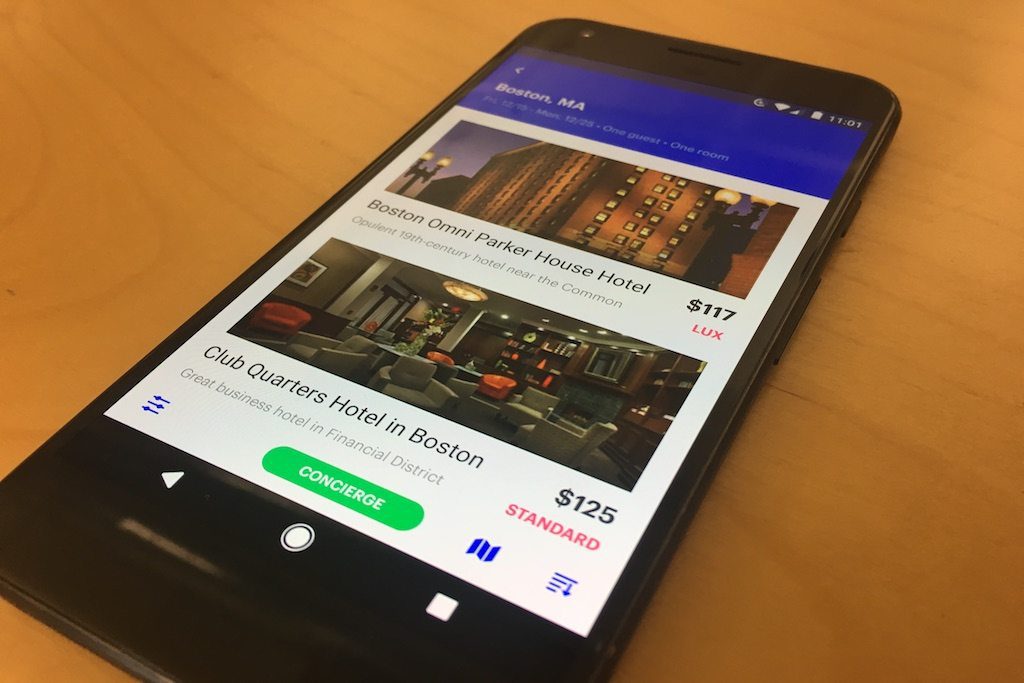Skift Take
Lola's push into business travel makes sense given the needs and booking frequency of experienced road warriors. But as Upside has experienced, attracting the right kind of users is a big challenge when travelers can just book trips themselves.
When Lola launched last year, founder Paul English thought a combination of deep-learning artificial intelligence and travel agents would represent a transformative tool for both leisure and business travelers.
English, best known for co-founding metasearch site Kayak, says Lola’s current pivot to attract business travelers is based on a series of realizations soon after the company launched its app for consumers.
“Two-thirds of our users were business travelers,” said English. “I didn’t think after Kayak that I would start a travel company, I thought I would start something in chat….
“I thought I was building a consumer company like Kayak and discovered it was business travelers that wanted chat. The second thing is that I thought we were building for chat, email, and phone. We found that people almost never want to talk on the phone. The older road warriors are almost more expert than younger ones, and they’re really interested in efficiency. They like sending a command and going off to do something while we do something for them.”
Lola now has 53 full-time employees, with 15 travel agents still on staff, and the company is sitting on much of the $44.7 million it has raised since its inception as Blade Travel to use for marketing efforts early next year. The quest to woo business travelers and their companies will likely be a costly undertaking, so for now Lola is focused on improving its app.
If the company wants to scale its travel agent operations, as hinted by English in an interview last year, it will likely do so by outsourcing the workers instead of hiring internally as originally planned.
At first, English hoped that the back-of-the-house technology his team was developing for travel agents to more easily book travel and service travelers would turn out to be a moneymaker for the company. That, too, has shifted over the last 18 months.
“My thoughts have changed on that,” said English. “Because we spent a lot of time building software for managing the travel agent, we thought that would be [intellectual property] we would license to other big companies. We really decided [we needed to focus on the app]. Most of our engineers are focused on the app for the end user, at the moment the focus for the next year is to perfect the app for road warriors and maybe for their companies as well.”
A New Focus
Lola’s new tagline “business travel buttery smooth” tells you all about the company’s goal: further refining its app to provide a seamless, responsive tool for business travelers. English solicited business travel policies on Twitter over the summer, and his colleagues have been looking them over to learn the most pressing pain points of frequent travelers.
A series of focus groups earlier this year, however, have guided Lola’s strategic shift.
“In January I thought small business travel was going to be one focus for us and we brought in a bunch of travelers, younger road warriors and older road warriors,” said English. “That alone was quite interesting to us. Younger road warriors just love business travel and spend an extra day in destination. Older travelers are lightning efficient and do meetings, get out, and get home.”
There’s also the matter of allowing business travelers to book hotel stays and flights that earn them valuable loyalty points they wouldn’t earn using traditional online booking sites like Expedia. English envisions these frequent business travelers flocking to Lola for the ease of service and perks more closely associated with a traditional travel agent.
“We built an integration with Sabre so you get the direct booking benefits; booking through Lola is as if it’s a direct booking,” said English. “The sweet spot are people who travel ten to twenty times a year because the more you travel, the better the AI personalization works and the more you want service.”
Algorithmic Service
While things may not have gone exactly according to plan, the company’s artificial intelligence technology has enabled it to provide automated personalization to users that outstrips the efforts of more popular online booking apps.
“The biggest thing on the tech side is the artificial intelligence,” said English. “We have this thing called a personal travel algorithm. It goes so far that when you and I are looking at hotel results when side by side, you may see different descriptions because we’re trying to cheese out what’s important to you. The descriptions of our hotels are written by the artificial intelligence, not the humans.”
Photos on the app remain those supplied by hotels, but the plan in the future is to use machine learning to present personalized images depending on traveler preferences.
English also weighed in on the other major player that has emerged in the unmanaged business travel space, Priceline co-founder Jay Walker’s Upside. He’s not a fan.
“It’s crazy what they’re spending to get people, to bribe people, to use that service,” said English. “The idea you can suddenly get people to use packages is stupid. Travelers are really busy and need every minute of their time, they need a service to work for them… I don’t think they have a good app, but they have very impressive marketing.”
The Daily Newsletter
Our daily coverage of the global travel industry. Written by editors and analysts from across Skift’s brands.
Have a confidential tip for Skift? Get in touch
Tags: business travel, ctir, lola, upside
Photo credit: Lola's app is being further refined. The company says its AI-enabled app has the potential to gain serious traction with business travelers. Skift
